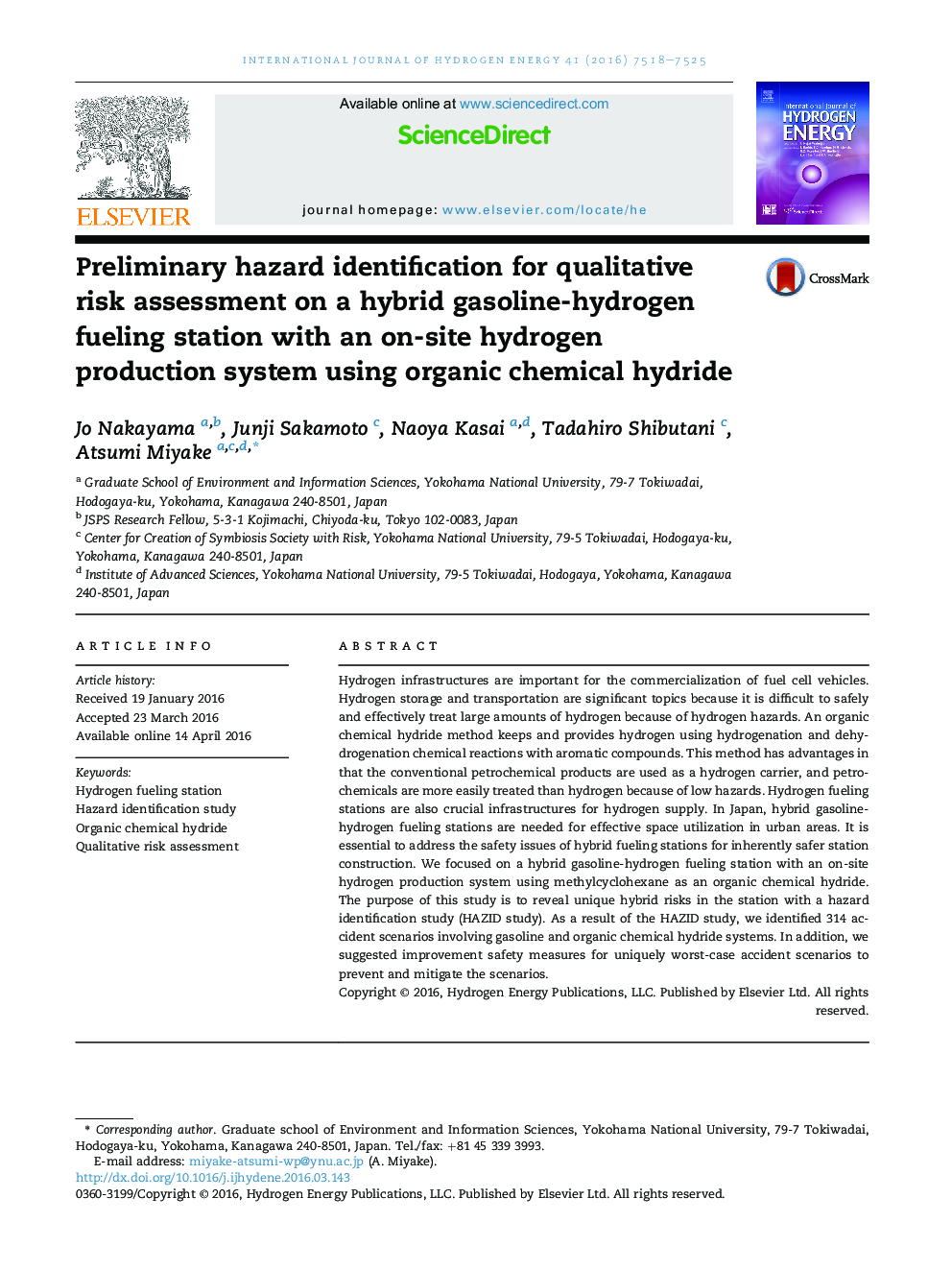| Article ID | Journal | Published Year | Pages | File Type |
|---|---|---|---|---|
| 1268705 | International Journal of Hydrogen Energy | 2016 | 8 Pages |
Hydrogen infrastructures are important for the commercialization of fuel cell vehicles. Hydrogen storage and transportation are significant topics because it is difficult to safely and effectively treat large amounts of hydrogen because of hydrogen hazards. An organic chemical hydride method keeps and provides hydrogen using hydrogenation and dehydrogenation chemical reactions with aromatic compounds. This method has advantages in that the conventional petrochemical products are used as a hydrogen carrier, and petrochemicals are more easily treated than hydrogen because of low hazards. Hydrogen fueling stations are also crucial infrastructures for hydrogen supply. In Japan, hybrid gasoline-hydrogen fueling stations are needed for effective space utilization in urban areas. It is essential to address the safety issues of hybrid fueling stations for inherently safer station construction. We focused on a hybrid gasoline-hydrogen fueling station with an on-site hydrogen production system using methylcyclohexane as an organic chemical hydride. The purpose of this study is to reveal unique hybrid risks in the station with a hazard identification study (HAZID study). As a result of the HAZID study, we identified 314 accident scenarios involving gasoline and organic chemical hydride systems. In addition, we suggested improvement safety measures for uniquely worst-case accident scenarios to prevent and mitigate the scenarios.
